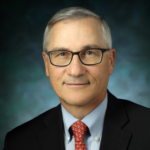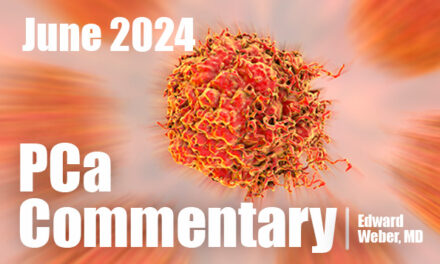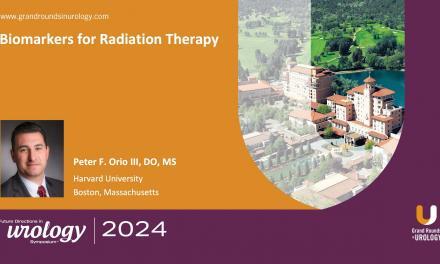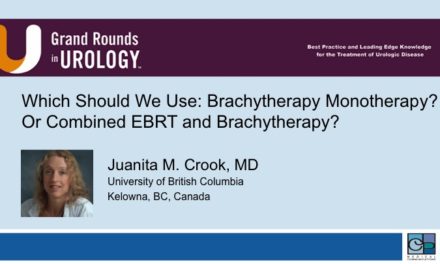Gerald L. Andriole, Jr., MD, presented “Prostate Cancer Risk Assessment: Focus on Early PSA and Hereditary Risk” during the 31st International Prostate Cancer Update in July 2021 in Snowbird, Utah.
How to cite: Andriole, Gerald L. “Prostate Cancer Risk Assessment: Focus on Early PSA and Hereditary Risk.” July 2021. Accessed Jan 2026. https://grandroundsinurology.com/prostate-cancer-risk-assessment-focus-on-early-psa-and-hereditary-risk/
Prostate Cancer Risk Assessment: Focus on Early PSA and Hereditary Risk – Summary#
Gerald L. Andriole, Jr., MD, Robert K. Royce Distinguished Professor and Chief of Urologic Surgery at Barnes-Jewish Hospital, the Siteman Cancer Center, and Washington University School of Medicine in St. Louis, Missouri, discusses two areas of prostate cancer risk assessment: age-adapted PSA and hereditary risk. Dr. Andriole begins with an early trial which showed that for men who have a PSA of <1 in their first screening, their 15-year chance of developing metastatic prostate cancer or dying is less than 1%. Their risk level drops down to <0.2% if their PSA value remains at <1 in a second screening. If screenings continue to show low PSA levels as the patient ages, one could conclude that a low-risk score should result in no further screening, but Dr. Andriole cautions against this approach. He then discusses the PROBASE study, a prospective study randomizing PSA testing in men starting at age 45 vs. the standard age of 50. The early arm of the study has 23,301 men and the goal is to look at the detection of Gleason grade group 2 or above cancer by the time a man reaches age 50. Dr. Andriole addresses the role of family history, noting that a positive family history increases the probability of developing prostate cancer, but not necessarily mortality. In contrast, a higher genetic risk score (GRS) is associated with a higher mortality rate. He then discusses using a Prompt score, which is more efficient when compared with a PSA screening alone. Dr. Andriole concludes that physicians should assess PSA early in life and may consider adding in 4K score. Ultimately, a combination of a number of factors, including family history, race and ethnicity, genetic risk score, and PSA, will be needed.
About The 31st Annual International Prostate Cancer Update:#
The International Prostate Cancer Update (IPCU), founded in 1990, is a multi-day CME conference focused on prostate cancer treatment updates with expert, international faculty. It is led by expert physicians and is designed for urologists, medical oncologists, radiation oncologists, and other healthcare professionals involved in the diagnosis and treatment of prostate cancer. Dr. Andriole delivered this educational activity during the 31st iteration of the meeting in July 2021 in Snowbird, Utah.
ABOUT THE AUTHOR
Gerald L. Andriole, Jr., MD, is the Chief Medical Officer of Prostatype Genomics AB in St. Louis, Missouri. Dr. Andriole is an internationally recognized key opinion leader in urology with a significant focus on prostate cancer. His research and clinical experience, much of which focuses on genomic testing, allows him to continue to positively impact the quality of care and outcomes for patients diagnosed with prostate cancer.





